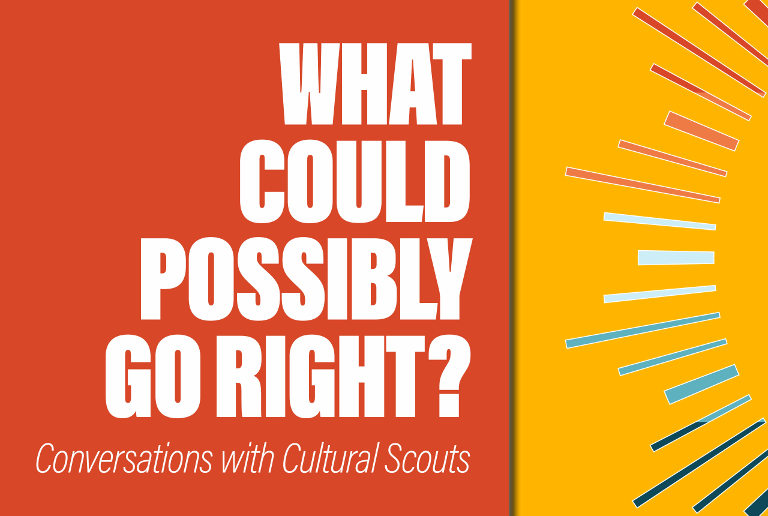The episodes of the What Could Possibly Go Right? podcast are perfect for discussion in high school, college, and graduate-level courses. Below we have grouped relevant episodes from the first few seasons under five themes so you can quickly find the material you’re looking for:
- Climate crisis
- Community resilience
- Racial & economic justice
- Democracy & society
- Personal resilience
Climate crisis
There are countless ongoing and newly arising threats central to the climate crisis, and it can be overwhelming. These podcast episodes look at how we can break these threats down into actionable items, focusing on not only the priorities but issues that are achievable to tackle at an individual and community level.
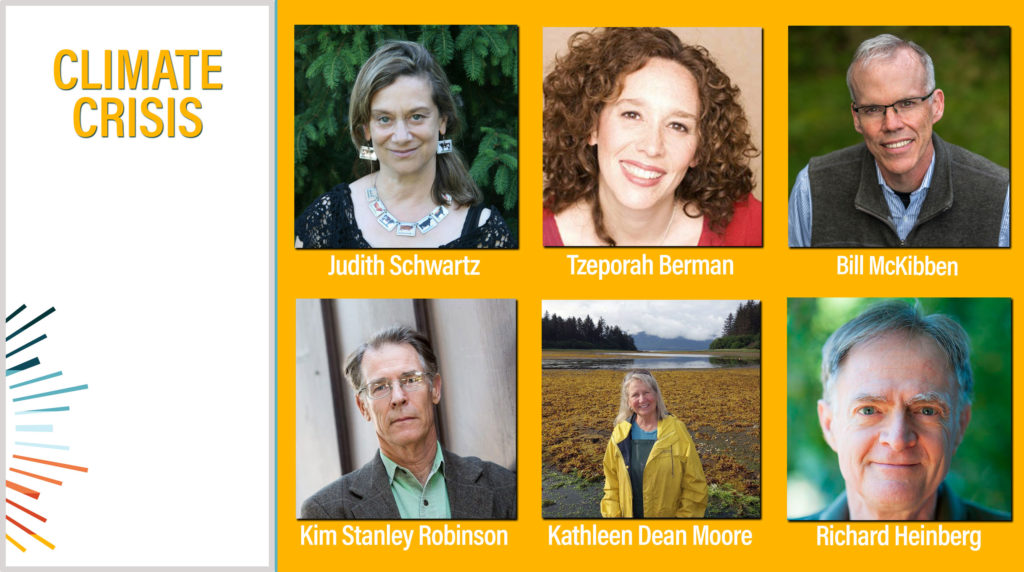
- #25 Judith D. Schwartz: Tuning In to the Natural World
- #20 Tzeporah Berman: Racing Against the Clock
- #2 Bill McKibben: What Crises Can Teach Us
- #32 Kim Stanley Robinson: The Paris Agreement, Neoliberal Capitalism, and Carbon Quantitative Easing
- #27 Kathleen Dean Moore: Building Anew on Moral Foundations
- #43 Richard Heinberg: Changing Our Relationship with Power
Community resilience
Community resilience is the sustained ability of a community to use available resources to respond to, withstand, and recover from adverse situations. These podcast episodes highlight the importance of building community resilience and why it’s crucial in our fight against the interrelated crises we’re facing.
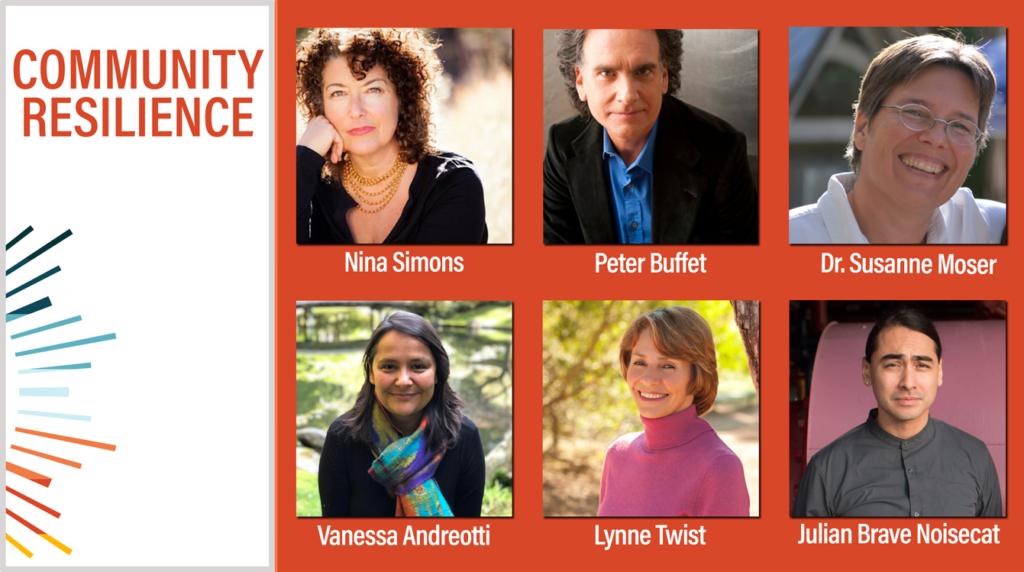
- #11 Nina Simons: Shifting Our Culture from Death-Affirming to Life-Affirming
- #12 Peter Buffett: A Rebirth Moment
- #5 Dr. Susanne Moser: Hope Requires Uncertainty
- #23 Vanessa Andreotti: The Collapse of the House That Was Built Through Colonialism
- #21 Lynne Twist: Seeds of a Breakthrough
- #26 Julian Brave NoiseCat: Creative Resilience in Indigenous Communities
Racial & economic justice
The theme of racial, historical, and economic justice is geared to analyze the social movement that focuses on the equitable distribution of both environmental benefits and environmental burdens. This includes the just treatment and involvement of people regardless of race, color, national origin, or income, with respect to the development, implementation, and enforcement of environmental laws, regulations, and policies.
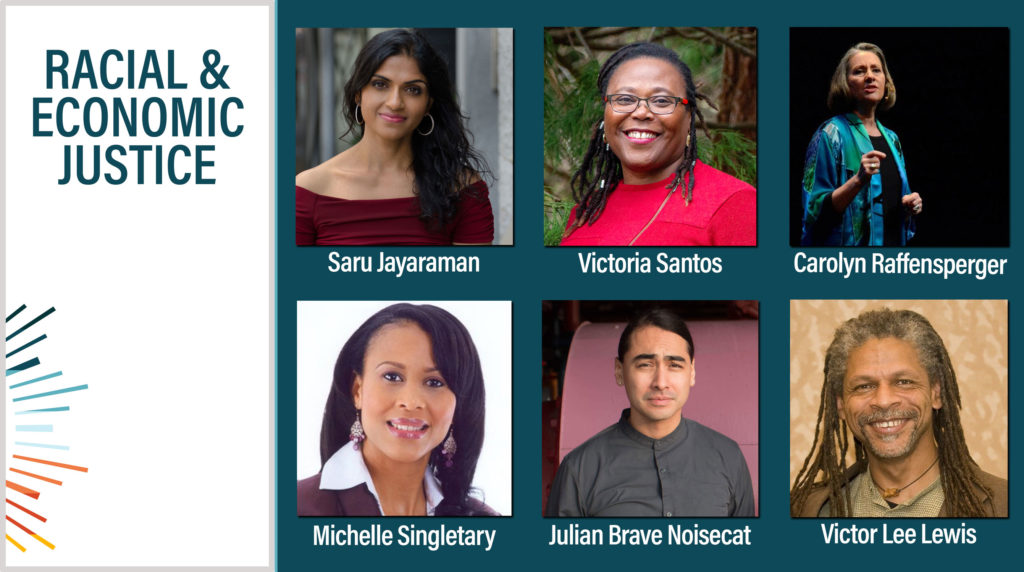
- #1 Saru Jayaraman: Extraordinary Moment of Opportunity
- #3 Victoria Santos: What Can We Be to Each Other?
- #9 Carolyn Raffensperger: The Intersectionality of Racism
- #31 Michelle Singletary: A Rising Tide Lifts All Boats
- #26 Julian Brave NoiseCat: Creative Resilience in Indigenous Communities
- #39 Victor Lee Lewis: Liberation is a Nonlinear Process
Democracy & society
Due to the far-reaching nature of the climate crises, national and international policy change is necessary to effectively achieve deep, long-term reductions in greenhouse gas emissions, and to help strengthen climate resilience worldwide.
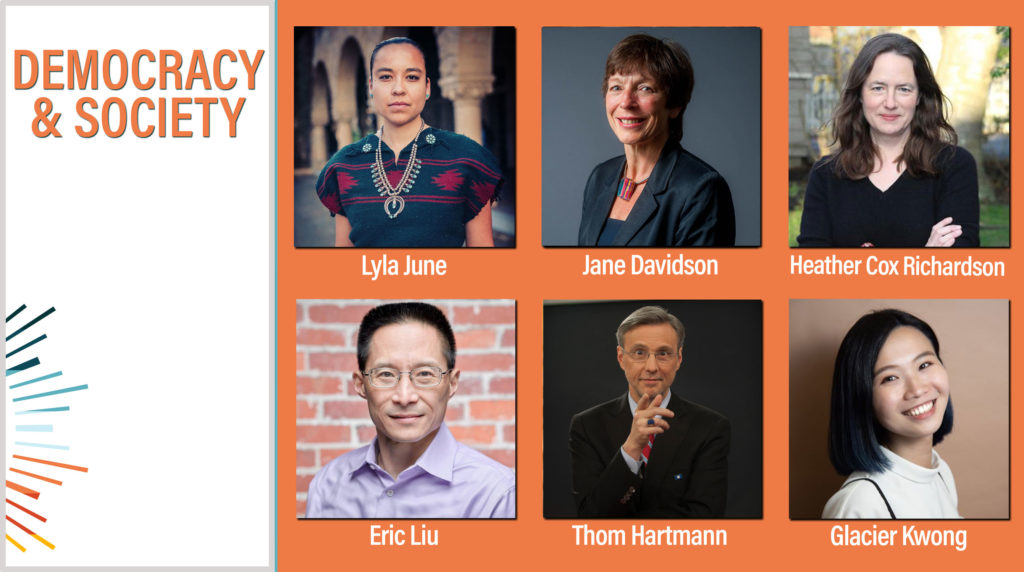
- #13 Lyla June: Seven Generations New Deal
- #16 Jane Davidson: Fairness to the Future
- #8 Heather Cox Richardson: Rewriting the Politics of the American Dream
- #45 Eric Liu: Fostering Civic Imagination and Responsible Citizenship
- #24 Thom Hartmann: Democracy is Not a Spectator Sport
- #38 Glacier Kwong: Self-care is an Act of Revolution
Personal resilience
“Personal resilience” to refer to the behaviors, thoughts, and actions that promote environmental well-being. Through this, people can develop the ability to withstand, adapt to, and recover from stress and adversity.
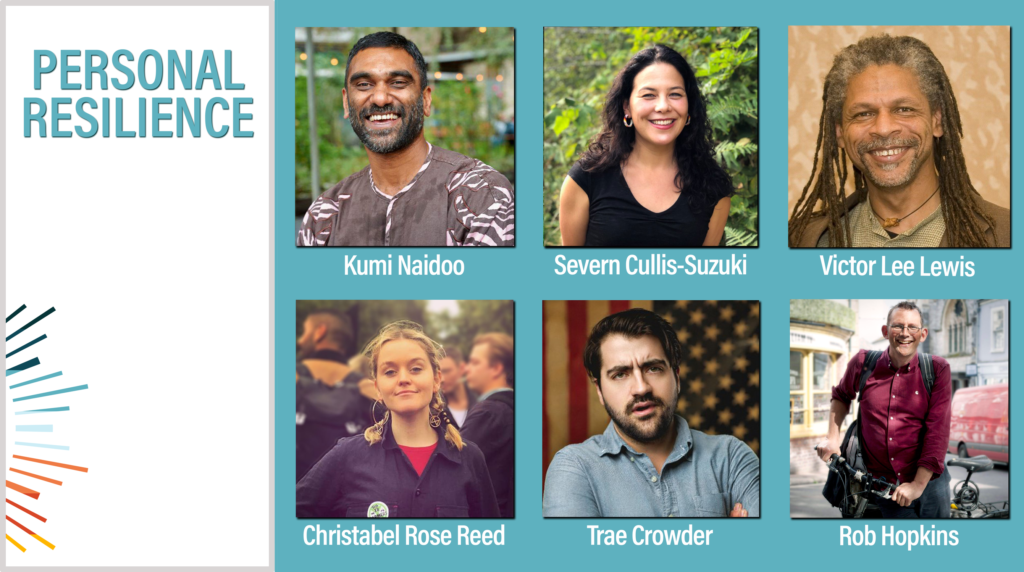
- #22 Kumi Naidoo: A Broken Economic System, the Power of Intersectionality, and Why Giving Up Is Not An Option
- #6 Severn Cullis-Suzuki: Building Love for Future Generations
- #39 Victor Lee Lewis: Liberation is a Nonlinear Process
- #44 Christabel Rose Reed: Curating Diverse Voices to Co-Create New Futures
- #35 Trae Crowder: The Inexorable March of Progress
- #14 Rob Hopkins: Stretching Our Imagination


